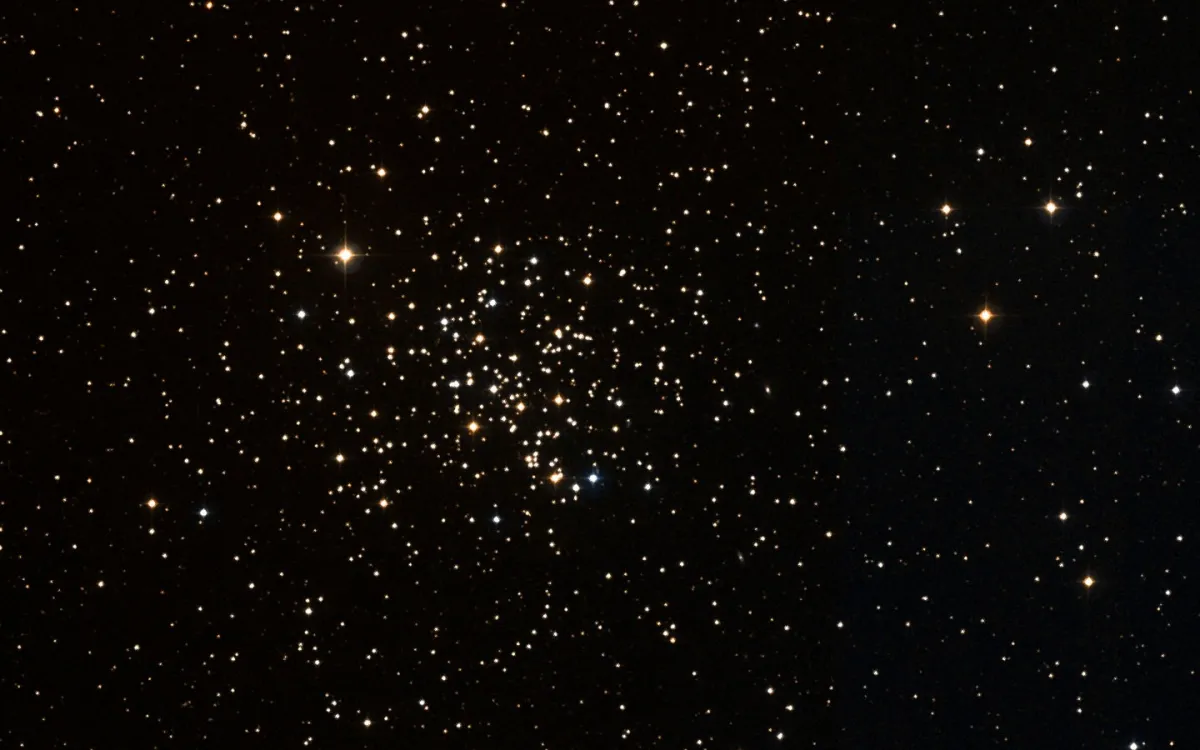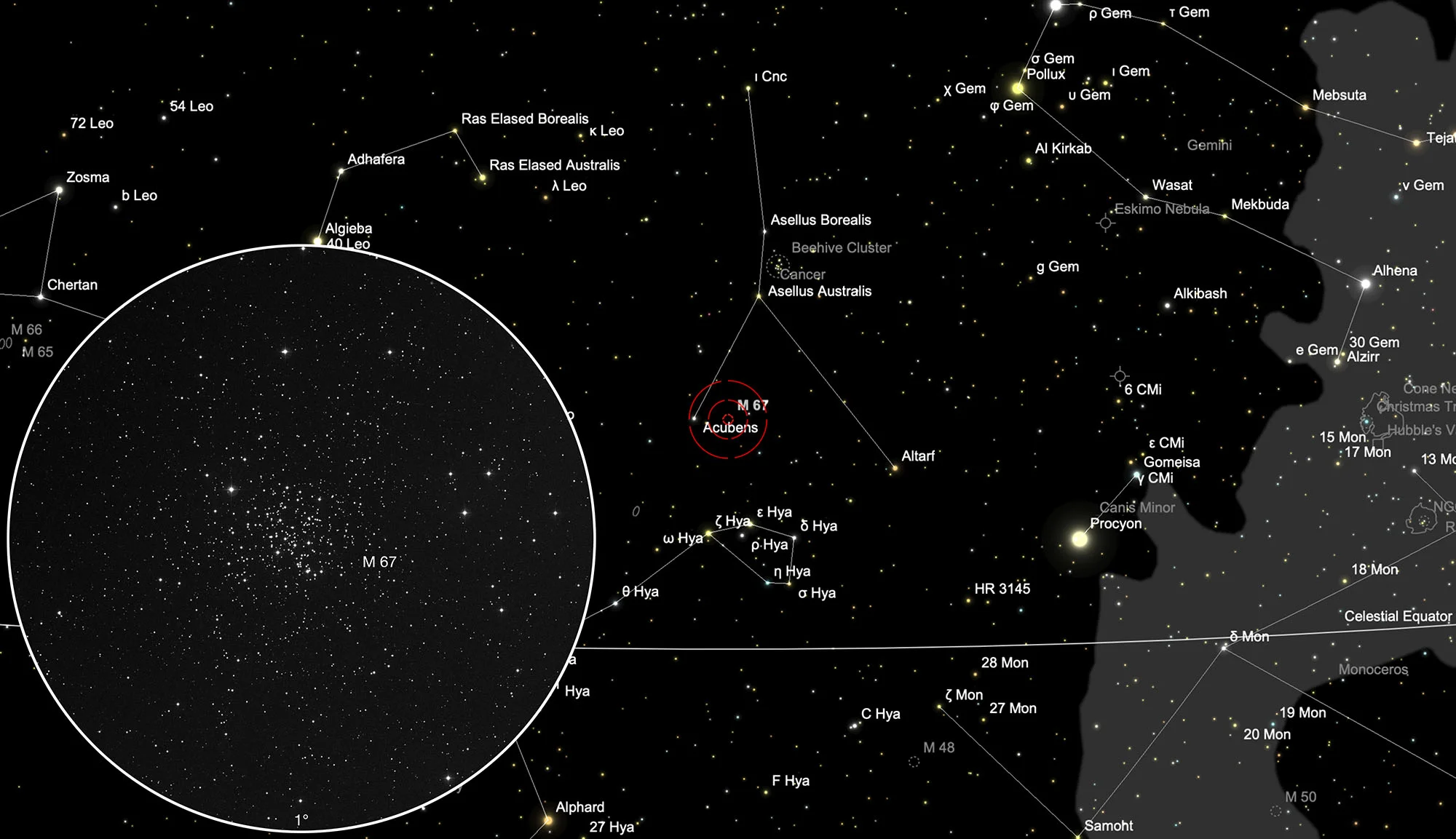Open Cluster Messier 67

History
The open star cluster was discovered before 1779 by Johann Gottfried Köhler, who described it as «a rather conspicuous nebula with an elongated shape near Alpha von Cancer». The fact that it was unable to resolve any single stars provides information about the imaging quality of its telescope. Independently of Köhler, the star cluster was discovered again on 6 April 1780 by Charles Messier. He too believed he saw a nebula and wrote about it: «A cluster of small stars with a nebula below the southern claw of Cancer. Position determined by α [Cancri].» [217, 281]
Physical Properties
M 67 is an open star cluster of the Trumpler type II2m and one of the oldest known of this type. The age is estimated to be 10 billion years. It contains about 500 stars, measures about 12 light years in diameter, and is about 2500 light years away from us. A special feature of this cluster is the great distance of 1500 light years outside the plane of our galaxy. Most of the open star clusters are found along the galactic plane. [4, 196]
| Designation | NGC 2682 |
| Type | OCL (II2m) |
| Right Ascension (J2000.0) | 08h 51m 18.0s |
| Declination (J2000.0) | +11° 49' 00" |
| Diameter | 25 arcmin |
| Visual magnitude | 6.9 mag |
| Metric Distance | 0.908 kpc |
| Dreyer Description | ! Cl, vB, vL, eRi, lC, st 10…15 |
| Identification, Remarks | h 531; GC 1712; M 67; OCL 549 |
Finder Chart
M 67 is located in the constellation Cancer, about 1.75° west of the star Acubens (α Cancri). It is best observed from October to July.
